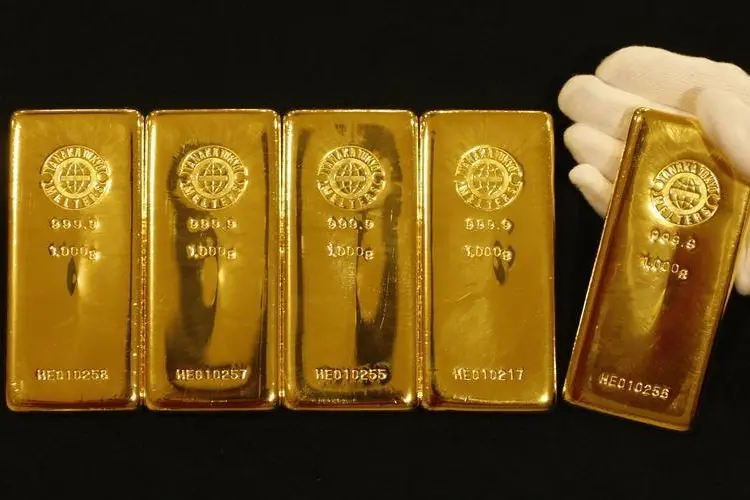PHOTO
Sliding internationally, the price of gold on the Egyptian market is better than it should be, reports Ahmed Kotb
International prices for gold have been dropping in recent weeks to reach a six-year low as a result of falling demand by investors and top consumers like China and India. Gold is currently trading on international markets at slightly over $1,100 per ounce, down from about $1,200 in June.
According to the World Gold Council, global demand for gold dropped 12 per cent during the second quarter of 2015 compared to the same period last year, to reach 915 tonnes. Falling gold prices are caused by several factors, including a stronger US dollar, expectations that the American Federal Reserve will increase interest rates for the first time since 2006, and less demand by China and India, the world's top gold consumers.
"All this leads investors to shift the focus away from gold as a safe investment haven at the moment," Eman Mohamed, a professor of economics at Ain Shams University in Cairo, explained.
Additionally, the European Greek debt deal, as well as the signing of the nuclear agreement with Iran last month, has contributed to falling prices for gold because stability does not create panic among investors who generally rush to buy gold at times of unrest, according to Mohamed.
Heavy rains in India this year have affected public spending, and regular and irregular customers for gold have suffered losses as a result, Indian media outlets have pointed out. China has also been affected by an economic slowdown that has prevented Asia's biggest economy from increasing its reserves of gold. Half of the current fall, according to the World Gold Council is a direct result of sharp declines in jewelry demand in China and India.
In the Egyptian market, however, the drop has been more controlled. A gram of 18, 21, or 24 karat gold is being sold at $3 above the rate it should be traded at if it followed global prices as it usually does.
"Egyptian gold-traders are having trouble in importing enough raw gold to meet domestic demand," said Wasfi Amin, head of the jewelry division of the Egyptian Federation of Chambers of Commerce, explaining that the Central Bank of Egypt's decision to put a ceiling on dollar deposits of $50,000 a month or $10,000 per day had pushed many gold producers to shut down workshops or factories.
This had made demand higher than supply for gold, which gave space for traders to sell at higher rates, he said. Producers and traders had been left with two options: either to remanufacture gold jewelry, the case for the majority of local producers, or smuggle gold into the country.
People are opting to sell gold instead of buying it to benefit from the unusual market prices, which are significantly higher than global prices. "More people are coming to our shop everyday to sell their jewelry instead of buying," said Ahmed Samir, owner of a Jewelry shop in Dokki district.
"In general, gold trade is affected by the CBE's measures related to the dollar," Samir pointed out, adding that importing raw gold is essential for the demand and supply balance to be restored in the domestic market.
It is hard to predict the price of gold in the short or long term, as it is related to changes in the global market and not affected by increased local demand during high seasons for jewelry sales, like feasts and in the summer.
"Despite its loss of value at some times of the year, gold is still a main safe haven for many citizens and investors in Egypt, and it will remain so," Amin said.
© Al Ahram Weekly 2015





















